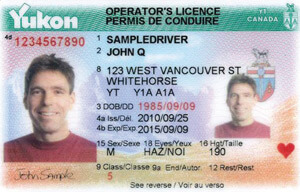
If you’re aiming to become a bus driver in Yukon, you’ll need a Class 2 Commercial Driver’s Licence. This license allows you to operate buses, including school buses, special activity buses, and special vehicles used to transport passengers. The demand for professional bus drivers is consistent, as they play a key role in public and private transportation sectors. To prepare for the road, thorough study and practice are vital. You must pass both knowledge and road tests to obtain your licence.
The knowledge test consists of multiple-choice questions based on the official Yukon Commercial Driver’s Guide, and you need to score at least 80% to pass — although this benchmark is subject to change as per Yukon Transportation regulations. The test typically takes about 30 minutes to complete. During the road test, you’ll demonstrate your practical skills in bus operation to an examiner.
While the official guide is an indispensable resource, practice tests offer the hands-on experience that reading alone cannot. This practice test, featuring 50 questions, is tailored for the Yukon Class 2 licence aspirants. It’s derived from the 2024 YT Commercial Driver’s Guide, and each question comes with an explanation to deepen your understanding of the rules. Good luck, and remember, safety is paramount when you’re in the driver’s seat!
questions
correct answers to pass
passing score
- A bus driver should choose a safe driving speed, primarily based on
- The air pressure of a spare tire should equal
- When should the bus driver perform a safety check of the bus?
- You're approaching an intersection, and you notice that the roadway beyond the intersection is blocked with traffic. What should you do?
- When travelling slower than the other traffic, you should
- If you're approaching a level railway crossing that is not protected by gates or railway crossing signals, what should you do?
- A vehicle being used for the removal of snow from a roadway must be equipped with a
- What is the main purpose of maintaining the correct air pressure in the tires?
- Under Ontario law, when a school bus stops with its red signals flashing, other drivers must
- A broken centre line on a roadway means that you may
- Which of the following items of equipment is not required on a school bus?
- If a front tire blows out, what should you do first?
- If your right wheels drop off the roadway, what should you do to get back onto the roadway?
- Generally the safest drivers are those who
- If a bus becomes disabled on a roadway at night, flares or reflectors must be placed approximately _________ in front of and behind the vehicle.
- When driving in fog, you should use
- You're driving on a two-way street when you hear the siren of an approaching emergency vehicle. What must you do?
- What is the most important concern for a bus driver?
- If your vehicle lacks antilock brakes (ABS), how can you stop quickly on a wet or icy roadway?
- When travelling at over 60 km/h (40 mph), a bus driver must maintain a following distance of at least _________ behind the vehicle ahead, except when passing.
- A controlled railway crossing may have
- A light-rail transit (LRT) train may take up to ________ to stop in an emergency.
- A Slow-Moving Vehicle sign should be placed on any vehicle that travels no faster than
- A tire that is overinflated or underinflated can
- A tractor-trailer travelling at high speeds creates air turbulence in which of the following areas?
- A vehicle that is twice the weight of a car and is travelling at twice the speed of that car requires how much braking power to stop in the same distance?
- A white diamond marking in your lane indicates that
- A white X pavement marking in your lane means that
- What is a danger zone?
- Which dashboard gauge can help you decide when to upshift?
- Airbags are
- An engine governor is
- An octagonal (eight-sided) red sign is
- An oncoming vehicle at night has not dimmed its high-beam headlights. What should you do?
- Any defect or deficiency that you find on your bus must be
- At a railroad crossing, flashing red lights and ringing bells mean that
- At a stop sign, you must
- At an intersection with no traffic lights or traffic signs, you should
- At an intersection, the traffic light is red, but a police officer motions you to go through. What should you do?
- At what speed should you back up your vehicle?
- At which of the following engine speeds should you drive your vehicle?
- Before you drive your vehicle, you should
- Before you drive, you should
- Before you enter a curve, what gear should you select?
- Before you may turn left at an intersection, you must yield to
- Besides regular brake maintenance, who is responsible for ensuring that the brakes of a vehicle are working properly before the vehicle is driven?
- Cars A and B have arrived at this intersection at about the same time. Car A wants to turn left and Car B wants to go straight. Who has the right-of-way?
- Compounding the air brakes can
- Different-sized tires can
- Double-clutching is
- During a pre-hill inspection of a vehicle equipped with air brakes, you should do which of the following?
- During freezing conditions, you should exercise extreme caution when driving through which of the following?

